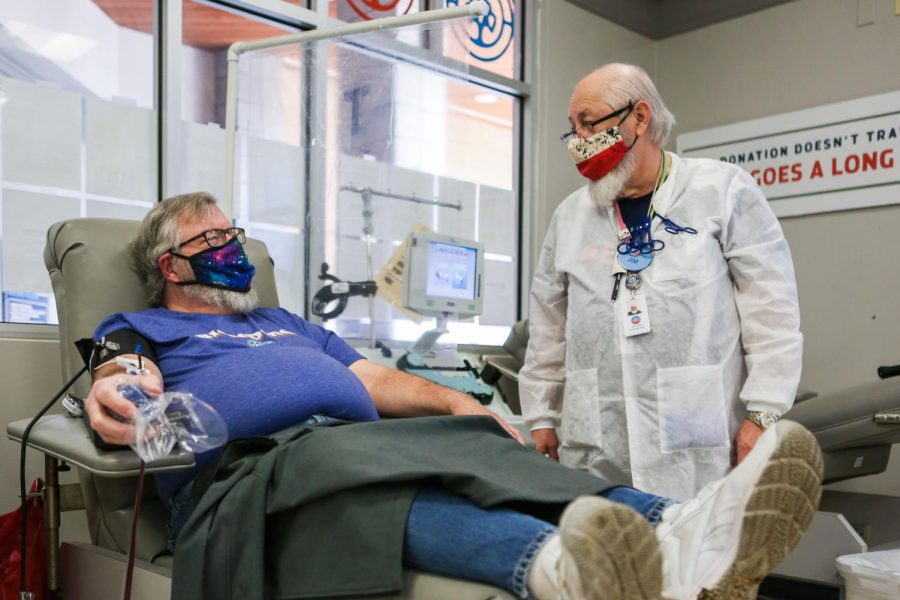New student organization attempts to increase blood donations amid supply shortages
February 1, 2022
Editor’s note: This article first appeared in the Jan. 28, 2022 flipbook.
When touring one of Austin’s We Are Blood facilities last semester, Tasha Anslyn realized how heavily the pandemic had diminished the blood supply in Central Texas.
“The (tray) for O-(negative) blood, which is the universal blood donor, had one full tray and one partially full tray,” said Anslyn, a speech, language, and hearing sciences and neuroscience senior. “It was unreal.”
As a response to the shortage, Anslyn co-founded the Texas Blood Brigade, which became an official student organization last month, to increase awareness about donating blood and to bring blood drives to UT. Nick Canedo, vice president of community engagement for We Are Blood, said the blood donation center has experienced supply shortages since October 2020 due to population growth in Austin and the pandemic causing fewer community drives and hesitancy about going to donation centers. This local shortage comes as the Red Cross declared it is experiencing the “worst blood shortage in over a decade.”
Canedo said the surge of COVID-19 cases this month only made the problem worse for We Are Blood, the primary blood supplier for Central Texas.
“We see a stepping backward in the progress we were making (before Omicron), with hosting more local blood drives as communities go back to higher safety measures,” Canedo said. “It’s a perfect storm of dealing with a pandemic and decreased mobile drives and donations at the same time that we’re dealing with overall growth in blood transfusion units.”
We Are Blood lost about half of their donors between the ages of 17 and 19 and a quarter of donors in their 20s because of fewer blood drives on college and high school campuses, Canedo said. He said increasing student involvement with blood donations could have a huge impact on the amount of blood the company receives.
“Just because the pandemic is going on doesn’t mean it’s not safe and it’s not necessary to donate,” said Anslyn, director of the Blood Brigade. “A huge population of blood donors is often college students. So we thought that the best way we could attack this is (to) use our resources (and) our connections.”
Lucia Eade, the Blood Brigade’s communications director, said the organization’s goal is to encourage people to donate blood by answering commonly asked questions and breaking down scientific articles.
“Having that information … maybe makes it easier for them to understand (that) it’s not as scary as it seems,” said Eade, a Plan II and psychology senior.
The Blood Brigade hosts blood drives on UT’s campus in partnership with We Are Blood. They often co-host with other student organizations in order to reach a wider student body, Anslyn said. Eade said they plan to host three blood drives on campus this semester.
“Because we’ve had so much experience with hosting these blood drives, … we can really make the process easier and act as a liaison between the University, between the blood bank (and) between the student organizations who want to make an impact,” Anslyn said.
Anslyn said they will use their official status to expand their initiatives.
“Blood donation is a really important thing,” Anslyn said. “Hopefully we can encourage students to become recurring lifelong blood donors so that wherever they end up, they can impact the community around them.”



